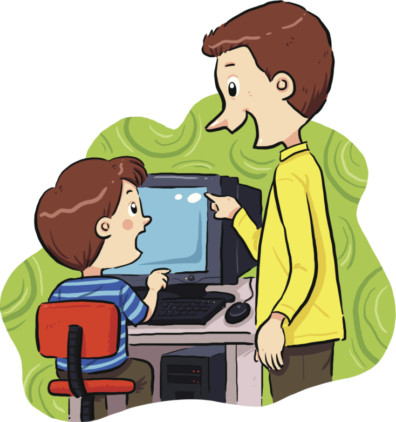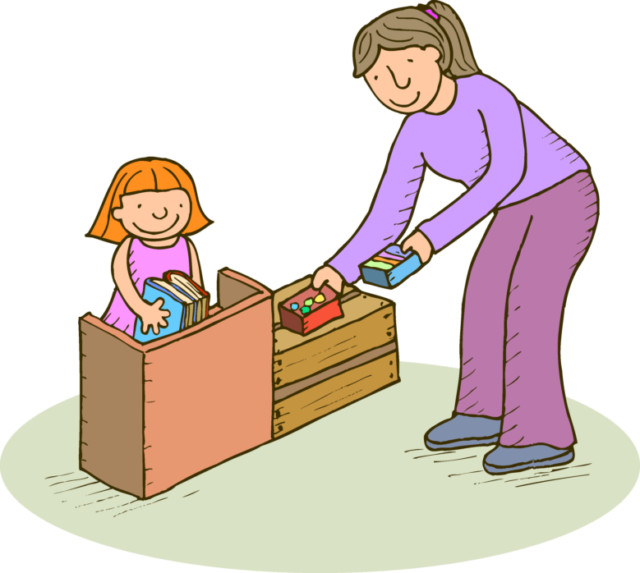
This week, Gulf News readers debated on our Facebook page if it is child abuse to teach your child a negative habit, and if we are perpetuating child abuse with our own bad habits.
Can smoking and drinking habits seen by children be considered child abuse? How about the negative way a parent treats people in the service industry or how they treat their spouse? We asked our readers to weigh in on the matter and received an overwhelming response.
Self awareness
With today’s demands and social networks, children are facing challenges and emotional abuse of a different level. Children are always watching us. They want to know how we are going to react to a particular situation. Whenever we exhibit self control with our voice and react to a difficult situation with grace and poise, we’re teaching our children how to navigate through life’s more difficult situations.
One may be a good parent at heart, but if they carry out bad parenting actions, they are failing their children and worse, setting them up for a possible lifetime of failure. Bad parenting handicaps a child and puts them under far more pressure in their quest to succeed. Chances of a child becoming an at-risk youth are far greater if they endure bad parenting in their childhood. To have emotionally stable children, we need to start by looking at ourselves.
From Ms Shivani Singh
UAE
No smoking
Smoking in front of children is wrong. In fact, if you smoke, don’t come near a child without using a mouthwash.
From Ms Vineeta Vinss
UAE
A shame
I see many people smoking in front of their children. This is so unhealthy, it is quite a shame.
From Ms M. Melissa
UAE
Belonging
It also includes putting the child down emotionally and psychologically. When children are being put down, they need emotional support, and without it, they will feel like they don’t belong in the place they are meant to be.
From Mr Nishanth Crzy
Dubai
Awareness
It is well known that children shouldn’t be witness to their parent’s smoking and alcohol abuse. Sadly, the same is not true of violence and extreme beliefs, which can be just as harmful.
From Mr Mike Gelbman
UAE
Indoctrination from behaviour
Children are like sponges when they’re young. They soak up the good and the bad things we do. It is important to always act in a way we would want our children and, by extension, the next generation to behave.
Any form of negative behaviour can be indoctrinating to their malleable minds, and I believe could be classified as abuse.
Physical scars may heal with time, but often times, emotional and mental scars drastically change who you are as a person and can stay with you far longer than a spanking can.
From Mr Ahmad Abu Gosh
UAE
Mouldable minds
I agree with this. Teaching a child disrespectful behaviour by example may not directly hurt the child in a physical way but it will emotionally demoralise them. Since children are easily mouldable, they will reflect what they have been taught when they face the world. When this impact is negative, it helps in yielding a negative society .
From Ms Aasha Eapen
Dubai
Positive interactions
Children pick up both negative and positive habits from their environment, regardless if the people are parents, siblings, peers or non-family members. This includes househelp and school educators. As a parent, the only way to ensure that the child learns the difference between right and wrong is by maximising the interaction between the parent and the child - this does also assume that the parent is a positive and appropriate influence on the child.
Today’s social environment is one where a child will often see negative traits such as abuse, smoking, excessive drinking and general misbehaviour, so the role of the parent is to teach the child what is right and what is wrong. In times of affordable domestic help in the GCC, it is even more important that the parents find time to interact with their children and strengthen their core values.
From Ms Zoe Kaviani
UK
Quality time
Exposures to internet and advertisements on electronic and print media have increased the necessities of people. To satisfy their ever growing needs, people seek to earn more money through any means compromising their ethics and values. This directly affects family life.
Children become most vulnerable to the modern materialistic society and tend to copy the lifestyles of their parents. Parents smoking in the car while their children are with them, smoking shisha in their presence, quarrelling over petty things are common sights nowadays. When parents are not able to share time with their children, these children are tempted to resort to games and other non-creative activities, which become dangerous to their social upbringing and future. To save the children exposed to abuse, the ideal way for parents is to share quality time with the family and teach them the values of health, simple living, career building and creating human relations to become a good citizen.
From Mr Aslam Doi
Dubai
Discipline versus abuse
I feel the way we approach child abuse has changed a lot in recently. Today, due to greater awareness, both the child and the parents are better equipped to deal with abuse. However, there is still a long way to go before children can be protected from a destructive environment without affecting their freedom.
There is an unexplored area of child abuse: children exposed to harmful experiences at home. Many children are brought up in homes filled with hate, violence and neglect. Legislation that protects children from such environments is soon becoming an imperative.
That being said, I believe in certain cases, the issue of child rights has gone a bit far. For example, in many countries children turn in their parents for disciplining them. The only effective way to draw the fine line is to educate the child on the difference between discipline and abuse. This is where a constructive environment in the classroom is critical for a child’s wholesome growth.
From Mr Reuben George
Dubai
No one’s perfect
It’s unrealistic to accuse parents of abuse for habits.
A hypothetical scenario: Not teaching your child good habits would be considered abuse because it would be to neglect a child of a good upbringing. Where does it end?
A parent struggling to quit smoking tells their child to never smoke - is this abuse?
It’s hard enough being a parent, but to expect parents to be perfect human beings is unrealistic.
From Mr Gerald Nakata
Kapolei, Hawaii
Simple forms
As rightly said, child abuse comes in many forms. It can be as ignorantly simple as giving an angry stare to getting physical on children.
In my view, even forcing a child to sit in a stroller is child abuse. It is disheartening to see educated parents forcing their children to sit on the stroller even though they wish not to. There are many ill effects of this parental behaviour.
In this example, for instance, this directly affects the mobility of the child. Children need to move, run, skip and jump. It also doesn’t allow the ability for the child to exercise. Being forced to sit in a stroller or get used to sitting in the stroller when they can actually walk with their parents reduces drastically their activity level. I also think this affects the physical and emotional bonding, not being allowed to hold hands with parents.
It is very simple to understand and practice.
From Mr Ramprasad Macharlu Srinivasamurthy
Dubai
Reap what we sow
Just like a seed grows into a plant, habits can also be planted into a child. When the habit is not a particularly good one, parents could be contributing to a different version of child abuse unlike the stereotypical notion of physical abuse. This can be very clearly illustrated by the unconscious practice of using swear words when things don’t go our way. In no time, a young child or a toddler could pick up this seemingly innocuous habit and might use it at the most inopportune time causing great embarrassment to the parent. This not only shows the parent in a bad light but also as a perpetrator of child abuse.
Things that adults have been doing for years without a second thought can quickly and easily be imbibed by children. Similarly, if we let children watch television shows that distinctly show a lack of respect for parents, teachers or people in positions of authority, we need not be surprised if these kids turn out rude and brash. We may have just let them enjoy their favourite television show and in the process contributed to eroding their moral fibre. These shows may be definitely enjoyable, but the child watching needs to understand that repetition of such behaviour is unacceptable.
This is most definitely easier said than done. As we all know, actions speak louder than words. Good parenting requires time and patience in equal measure. Our habits need to be evaluated and consciously moderated for us to serve as role models for children. Remember, what we sow, we will reap.
From Ms Lisa Jacob
Dubai
Serious problem
This is an important topic to be discussed seriously. It’s not about attacking children, but teaching them by doing bad activities or habits in front of them. It should not be accepted.
In my opinion, smoking, drinking soda and eating junk foods are serious problems faced by children today. I don’t think a weekly or monthly awareness program can change this. It is always the duty of the parents to be smart in front of their children.
From Mr N. P. Shahid
UAE
Living the change
The real meaning of child abuse is ‘improper treatment’. Most parents expect a lot from their children, but do not understand how that can be achieved, which can lead to underappreciation for the efforts it takes. Sometimes parents feel that their responsibility ends by just putting their children in schools and quantifying their progress by grading, but there is more to life than school marks.
Parents have to live the change, which they want to see in their children. School can teach subjects, but it is the responsibility of parents to teach values and ethics. This includes honesty and respect to elders, which no school can teach and no grade can quantify; hard work and the rewards of hard work.
Another thing with such value, is teaching that they have to be taught at very young impressionable age. By this I mean parents have to live that life in front to them on a daily basis.
You cannot expect children to respect you, when they see you not respecting their grandparents, You cannot expect them to be honest, when they see you not being honest. Dishonesty can be percieved in many ways: it could be not parking in correct place or not returning extra change someone has paid you.
The best way to do this, I feel, is by telling them short simple stories and ‘living the change’ in front of them on a daily basis. Children are far smarter than we think or give them credit.
From Ms Ghanshyam Vasudeo Vyas
UAE
Editors’ note: Is there a news report that you feel strongly about? Something that has to be addressed in the community and requires resolution? Email us on readers@ gulfnews.com. You can also post a comment on our Facebook page or tweet us @GNReaders.










